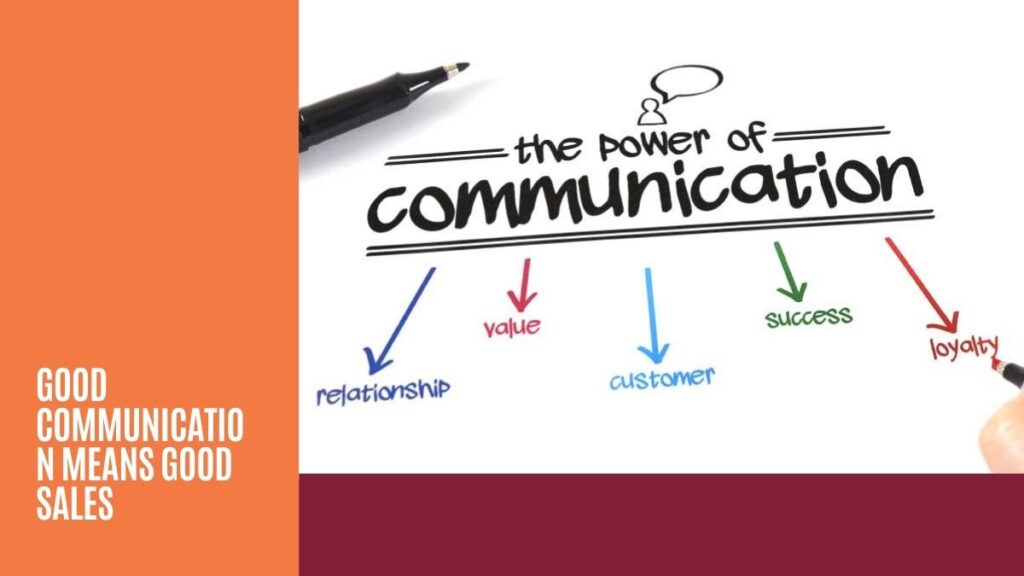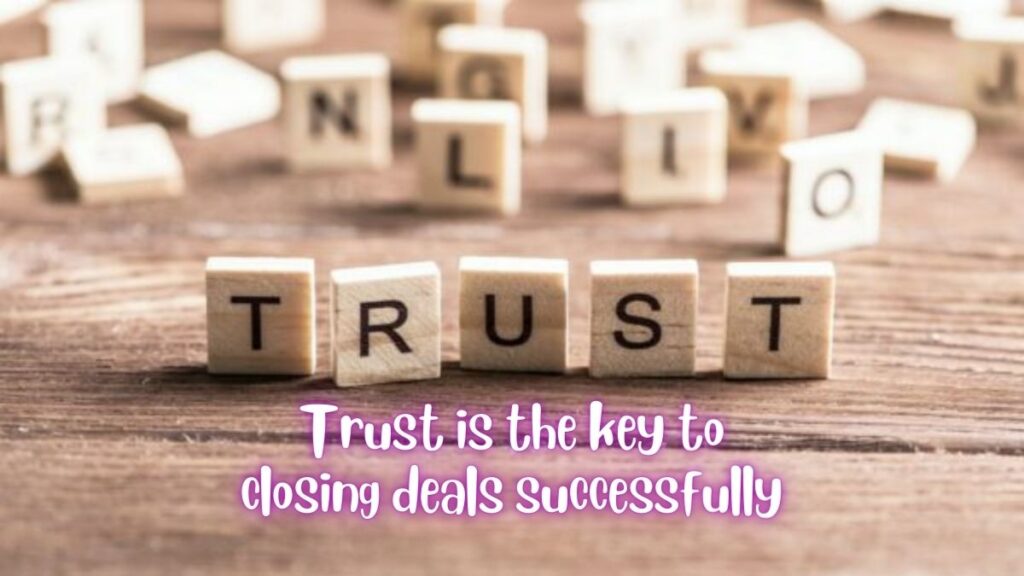Sales tactics are essential for driving business growth and maximizing profits. Whether you’re selling physical products or services, understanding the art of selling is crucial. In today’s competitive landscape, there are various channels to reach customers, such as online platforms, brick-and-mortar stores, and advertising.
However, let’s dive into what sales truly entails and explore effective tactics.
Cultivate Patience

Patience is a vital trait in the sales game, especially during negotiations. Buyers often aim to secure the best deal possible, pushing sellers to their limits. Resilience and a calm approach are essential to ensure profit maximization. Remember, while buyers have choices, sellers need to maintain long-term relationships and preserve the business’s success.
Here are some strategies to help you develop and maintain patience in the sales profession:
- Recognize the Long-Term Perspective: Understand that sales success is built over time. It’s not about immediate gratification but rather nurturing relationships, building trust, and creating a solid reputation. Embrace the mindset that each interaction contributes to your long-term goals, and patience will become a natural part of your approach.
- Set Realistic Expectations: Realize that not every prospect will convert into a sale right away. Set realistic expectations for yourself and understand that the sales process often involves multiple touchpoints and nurturing before closing a deal. By acknowledging this reality, you’ll be better prepared to handle setbacks and keep a patient mindset.
- Practice Active Listening: Actively listening to your prospects helps you better understand their needs and concerns. By focusing on their words, you demonstrate respect and empathy. This not only strengthens your connection with potential customers but also enables you to respond thoughtfully and adapt your approach. Active listening encourages patience in navigating the sales process.
- Embrace Relationship Building: Sales is about building relationships, not just making transactions. Invest time and effort in understanding your prospects, their challenges, and their goals. Cultivate genuine connections by showing empathy and being responsive to their needs. Building strong relationships takes time, but the patience invested will yield fruitful results.
- Develop Emotional Intelligence: Emotional intelligence allows you to manage your emotions and respond effectively to others. Recognize that not every interaction will go as planned, and customers may express frustrations or objections. By developing emotional intelligence, you can regulate your emotions, remain calm, and handle challenging situations with patience and understanding.
- Practice Self-Care: Patience can be nurtured by taking care of yourself. Engage in activities that help you relax and recharge outside of work. Exercise regularly, practice mindfulness or meditation, spend time with loved ones, and pursue hobbies or interests that bring you joy. Taking care of yourself helps maintain a balanced mindset and promotes patience in all areas of your life, including sales.
- Seek Support and Learn from Setbacks: Surround yourself with a supportive network, whether it’s colleagues, mentors, or friends who understand the challenges of the sales profession. Share experiences, seek advice, and learn from setbacks. Embracing a growth mindset and seeing setbacks as opportunities for improvement will help you develop patience and resilience.
Remember, cultivating patience in sales is a continuous process. It requires self-awareness, intentional effort, and a commitment to personal growth. By adopting these strategies and practicing patience consistently, you’ll enhance your effectiveness as a sales professional and build strong, lasting relationships with your customers.
Knowledge is Power

Buyers often research products extensively before making a purchase. As a salesperson, it’s crucial to equip yourself with superior knowledge about your offerings. Stay up-to-date with market trends and provide accurate and compelling information to buyers. Even if they are well-informed, your expertise and captivating presentation can sway their decisions.
Before approaching a buyer as a salesperson, it’s important to gather relevant information and be prepared. Here are some key things you should know:
- Product/Service Knowledge: Have a deep understanding of the product/service you are selling. Be aware of the features’ advantages and limitations and be ready to answer questions about them.
- Buyer’s Industry and Company: Research the buyer’s industry and their company. Understand their business model, market position, recent news or updates, and any specific challenges or trends affecting their industry. This knowledge allows you to tailor your sales pitch and demonstrate your understanding of their unique needs.
- Buyer Persona: Develop a clear understanding of the buyer persona or the type of person you’ll be interacting with. Know their role, responsibilities, pain points, and motivations. This helps you align your messaging and approach to their specific needs and interests.
- Previous Interactions: If possible, gather information about any previous interactions the buyer has had with your company or sales team. This includes previous purchases, inquiries, or objections raised. Having this information allows you to personalize your approach and address any concerns or questions they may have.
- Current Challenges and Goals: Identify the buyer’s current challenges, goals, and priorities. This information helps you position your product or service as a solution that addresses their specific pain points or helps them achieve their objectives. Be prepared to discuss how your offering can add value and contribute to their success.
- Competitor Awareness: Understand the competitive landscape and be aware of any competing products or services that the buyer may be considering. This knowledge allows you to highlight the unique features, benefits, or advantages of your offering compared to alternatives.
- Decision-Making Process: Familiarize yourself with the buyer’s decision-making process. Understand who is involved in the decision, their roles, and any specific criteria or considerations they prioritize. This knowledge helps you navigate the sales process effectively and engage with the right stakeholders.
- Objections and Concerns: Anticipate potential objections or concerns the buyer may have regarding your product or service. Be prepared with relevant responses and solutions to address these objections. Having a proactive approach to handling objections demonstrates your expertise and builds trust.
- Value Proposition: Clearly articulate your value proposition and how your offering solves the buyer’s problems or meets their needs. Understand the unique selling points of your product or service and how they align with the buyer’s requirements. Be prepared to showcase the benefits and outcomes that the buyer can expect.
- Industry Knowledge and Trends: Stay updated on industry trends, challenges, and innovations that may impact the buyer’s business. This knowledge positions you as a trusted advisor and helps you have meaningful conversations with the buyer about their industry and potential opportunities.
By being well-prepared and knowledgeable about the buyer and their context, you can approach them with confidence and provide a tailored sales experience that addresses their specific needs.
Master the Art of Communication

In sales, you encounter diverse personalities, and maintaining professionalism is vital. Adopt a friendly and respectful approach, ensuring a comfortable environment for buyers. Building trust and rapport is key to establishing lasting customer relationships. Sometimes, acting as a trusted advisor and offering suggestions can create a genuine connection and facilitate the sale.
Being a better communicator is crucial for success in sales. Here are some tips to enhance your communication skills:
- Active Listening: As mentioned above, actively listen to your prospects by giving them your full attention. Avoid interrupting and truly focus on understanding their needs, concerns, and objectives. Active listening builds trust and allows you to tailor your sales approach effectively.
- Clear and Concise Messaging: Develop the ability to convey your message clearly and concisely. Avoid using jargon or complicated language that might confuse or overwhelm your prospects. Craft a compelling value proposition and communicate it in a way that is easy to understand and resonates with your audience.
- Adapt to Your Audience: Different prospects have different communication styles and preferences. Pay attention to their cues and adapt your communication style accordingly. Some may prefer a more formal approach, while others may respond better to a casual and friendly tone. Flexibility and adaptability in your communication will help you connect with a diverse range of customers.
- Ask Open-Ended Questions: Use open-ended questions to encourage dialogue and gather valuable information. These questions require more than a simple “yes” or “no” response and encourage prospects to share their thoughts, concerns, and needs. Open-ended questions foster meaningful conversations and allow you to uncover valuable insights that can guide your sales process.
- Tailor Your Message: Personalize your communication to address the specific needs and pain points of your prospects. Research your prospects in advance and gather relevant information that can help you tailor your message. Show that you understand their unique challenges and present your product or service as a solution that meets their specific needs.
- Non-Verbal Communication: Pay attention to your non-verbal cues, as they play a significant role in how your message is received. Maintain good eye contact, use appropriate facial expressions and gestures, and exhibit confident body language. These non-verbal signals convey trustworthiness, confidence, and engagement, reinforcing your verbal communication.
- Practice Empathy: Empathy is a powerful communication skill that helps you connect with your prospects on an emotional level. Put yourself in their shoes and try to understand their perspective and feelings. Empathetic communication shows that you care and build rapport, making it more likely for prospects to trust and engage with you.
- Continuous Improvement: Seek feedback from colleagues, mentors, or supervisors to continuously improve your communication skills. Actively work on areas of improvement, such as clarity, tone, or handling objections. Attend workshops, read books, or take courses on effective communication to enhance your skills further.
Remember, becoming a better communicator in sales is an ongoing process that requires practice, self-awareness, and a genuine desire to connect with your prospects. By honing your communication skills, you’ll build stronger relationships, convey your value proposition effectively, and ultimately increase your sales success.
Uphold Trust

When we say ‘sales tactics’, we do not advocate dishonesty or lack of ethics. Honesty is the cornerstone of successful sales. Never compromise the trust of your customers by providing false information. Maintain transparency and deliver on your promises. Once trust is broken, it’s challenging to regain a customer’s confidence. Focus on accurate product representation and be a reliable source of information.
Honesty in sales covers several important aspects that contribute to building trust and maintaining strong customer relationships. Here are some key areas where honesty plays a crucial role:
- Product or Service Information: Be honest and transparent about the features, benefits, and limitations of your product or service. Provide accurate and reliable information to help buyers make informed decisions. Avoid exaggerations or misrepresentations that may lead to dissatisfaction or distrust.
- Pricing and Costs: Clearly communicate the pricing structure, any additional fees, and potential ongoing costs associated with the purchase. Avoid hidden charges or unexpected expenses that may catch the buyer off guard. Being upfront about pricing builds trust and ensures a transparent sales process.
- Delivery and Timelines: Provide realistic estimates for product delivery, implementation, or service activation. Honesty about timelines helps manage customer expectations and prevents disappointment or frustration. If there are any delays or unforeseen circumstances, communicate them promptly and provide alternative solutions.
- Guarantees and Return Policies: Clearly explain any guarantees, warranties, or return policies associated with your product or service. Ensure that buyers understand their rights and the process for resolving any issues or concerns. Honesty in these areas builds confidence and demonstrates your commitment to customer satisfaction.
- Competitor Comparison: When discussing competitors, be honest and objective in your comparisons. Highlight your unique strengths without resorting to false or misleading information about competitors. Customers appreciate honest assessments and are more likely to trust your recommendations.
- Sales Promises and Commitments: Only make promises or commitments that you can fulfill. Be honest about what your product or service can deliver and set realistic expectations. Overpromising and underdelivering can lead to customer dissatisfaction and damage your credibility.
- Handling Objections and Concerns: Address customer objections and concerns honestly and directly. Avoid misleading tactics or trying to downplay legitimate concerns. Instead, listen actively, provide accurate information, and offer solutions or alternatives when appropriate.
- Customer Feedback and Testimonials: Share honest customer feedback and testimonials that accurately represent the experiences of your customers. Avoid fabricating or embellishing testimonials as it undermines trust and damages your reputation.
- Post-Sale Support and Service: Provide reliable and responsive post-sale support. Be honest about the level of support customers can expect and follow through on your commitments. Honesty in this area helps foster long-term customer loyalty and satisfaction.
- Ethical Practices: Conduct your sales activities with integrity and adhere to ethical standards. Avoid deceptive tactics, pressure selling, or any behavior that compromises the trust and well-being of your customers. Honesty and ethical practices are the foundation of a successful and sustainable sales career.
By embracing honesty in these areas, you build trust, foster long-term customer relationships, and establish yourself as a reputable and reliable sales professional.
While there are numerous sales tactics available, their effectiveness lies in proper execution. Remember, success in sales requires dedication and hard work. If you feel inclined towards a career in sales after reading this article, embrace it wholeheartedly. Each profession demands commitment, so take your chosen path seriously and strive for excellence.
Good luck! ☺☺☺☺☺





